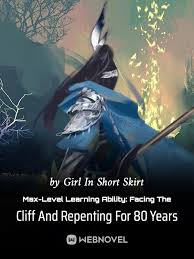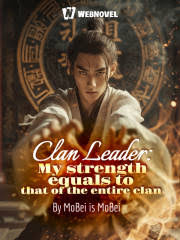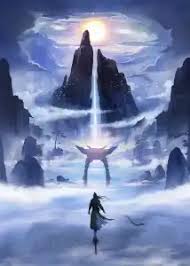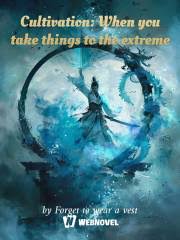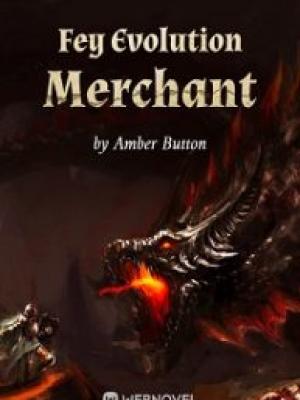The Story in 3 Sentences
Once a disgraced prince and sect heir, Li Qingshan is stripped of his cultivation and banished to Siguo Cliff to repent for eighty years after allegedly freeing a demonic saintess, forced to live in isolation while tending to the Forest of Tombs .
During his exile, he awakens a max-level learning ability that lets him instantly comprehend any technique he observes, slowly rebuilding his strength in secret by studying the countless steles and relics buried among the graves .
Decades later, when the Divine Path ranking appears and names him the strongest cultivator in the human realm—“God amongst man”—Li Qingshan emerges from seclusion not for glory, but to confront the hidden truths behind his fall and the celestial schemes threatening his world .
Why It Stands Out
1. The Quiet God Who Watches Graves
Unlike typical revenge-driven xuanhuan protagonists, Li Qingshan’s power grows not through battles or scheming, but through silent observation and daily ritual. His exile becomes a monastery of mastery, where every tombstone is a textbook and every dawn a new lesson. This meditative approach to overpowered progression flips the genre’s usual noise into something eerily calm—and strangely compelling.
2. Comprehension Without Instant Power
The novel cleverly subverts the “instant OP” trope by emphasizing that understanding a technique is not the same as wielding it. Li Qingshan may grasp the Sky Turning Print in a glance, but his crippled body and weakened soul require years of cultivation to manifest its true might. This creates tension between knowledge and capability, making his eventual breakthroughs feel earned rather than handed.
3. A World That Forgets, But He Remembers
While the sect moves on, appointing new heirs and forging alliances with former enemies like the Changhen Demonic Sect , Li Qingshan remains fixed in time, a ghost tending to ghosts. Yet this very stagnation becomes his advantage—while others chase fleeting power, he accumulates timeless wisdom, turning his punishment into the ultimate strategic retreat.
Characters That Leave a Mark
There’s Yuhua Sect Master – the stern but conflicted leader who sentences Li Qingshan to lifelong exile, torn between paternal duty as a clan head and political necessity in a world where demonic threats loom large.
You’ll meet the Demonic Divine Saintess, whose mysterious release sets the entire plot in motion; though rarely seen, her influence echoes through every alliance and betrayal, her true motives buried deeper than the tombs Li Qingshan cleans.
And Changhen Sect Envoy? They’re the one who arrives decades later under the guise of diplomacy, testing whether the “dead” prince still breathes—and whether the Yuhua Sect’s secrets are worth stealing .
The Flaws Fans Debate
The translation quality sharply declines around chapter 45, with some readers reporting skipped scenes or machine-translated gibberish that breaks immersion.
The worldbuilding relies heavily on generic xuanhuan tropes—upper realms, celestial courts, immortal emperors—without adding unique cultural or philosophical depth, making the setting feel like a recycled backdrop.
Despite learning thousands of techniques, Li Qingshan consistently uses only a handful in combat, leading fans to question why his vast knowledge rarely translates into tactical variety.
Must-Experience Arcs
Ch. 1–30: The Siguo Exile – Li Qingshan begins his penance at the cliff, discovers his max-level learning ability, and slowly rebuilds his foundation by studying tomb inscriptions, all while the sect declares him dead to the world.
Ch. 150–200: The Divine Path Rises – The celestial ranking system manifests, placing Li Qingshan at number one; sects scramble to identify the mysterious top cultivator, unaware he’s the disgraced heir they abandoned.
Ch. 480–507: The Celestial Court Reckoning – Li Qingshan confronts the truth behind the Ancient Celestial Court’s fall and the current emperor’s rise through devouring geniuses’ physiques, culminating in a final choice between vengeance and transcendence .
Killer Quotes
“Knowledge is not power until the body obeys the soul.”
“To face the cliff is to face oneself; to wipe the tombs is to erase the past.”
“Gods are not born—they are forged in silence, while the world shouts.”
Cultural Impact
Fans on Webnovel repeatedly compare it to “Solo Leveling” meets “Reverend Insanity,” praising its calm MC in a genre full of rage-filled avengers.
The phrase “facing the cliff and repenting for 80 years” became a meme for readers stuck in repetitive daily routines, jokingly calling their jobs or studies their own “Siguo Cliff.”
Despite mixed reviews, it maintained a loyal following due to its consistent early chapters and the rare portrayal of cultivation as intellectual discipline rather than brute force.
Final Verdict
Start Here If You Want:
A slow-burn power fantasy where intelligence trumps aggression and solitude becomes strength.
An overpowered protagonist who wins through patience, not plot armor.
A xuanhuan story that feels meditative rather than chaotic, offering calm in a genre known for noise.
Study If You Love:
Narratives that explore the gap between theoretical mastery and practical execution.
The use of exile as a narrative device for both punishment and enlightenment.
Eastern cultivation systems that prioritize comprehension, memory, and internal alchemy over external conflict.
Avoid If You Prefer:
Fast-paced action with constant battles and romantic subplots—this novel offers neither in any meaningful way.
Consistent translation quality beyond the first 40 chapters, as later sections suffer from machine-translation artifacts.
Deep character interactions; supporting cast often vanish once their plot utility ends, leaving Li Qingshan in near-total isolation.
